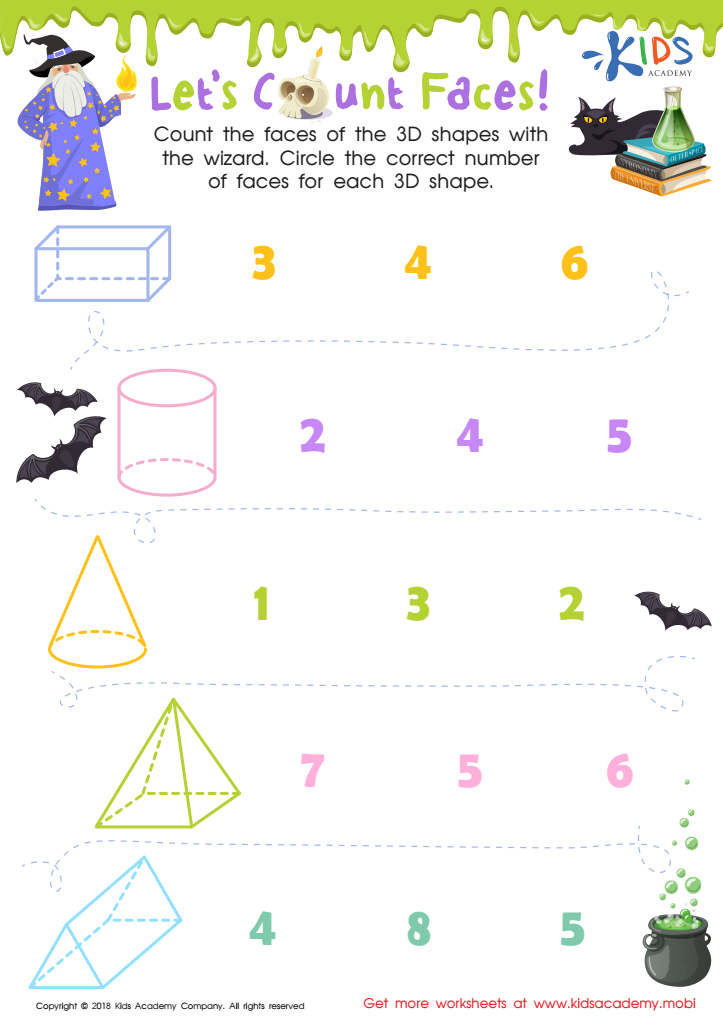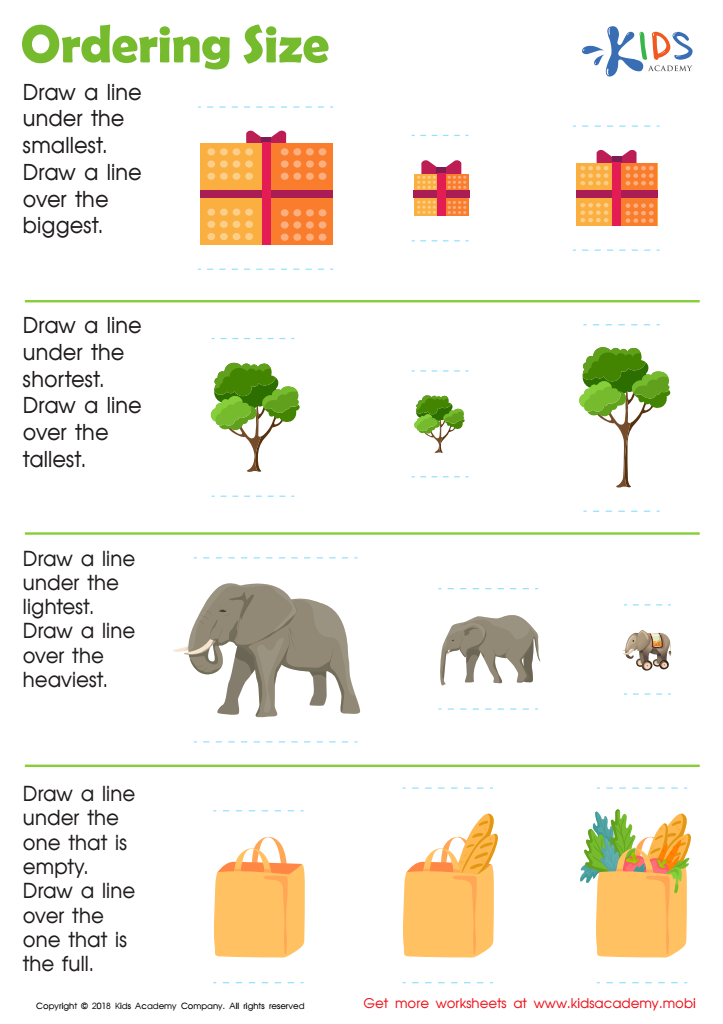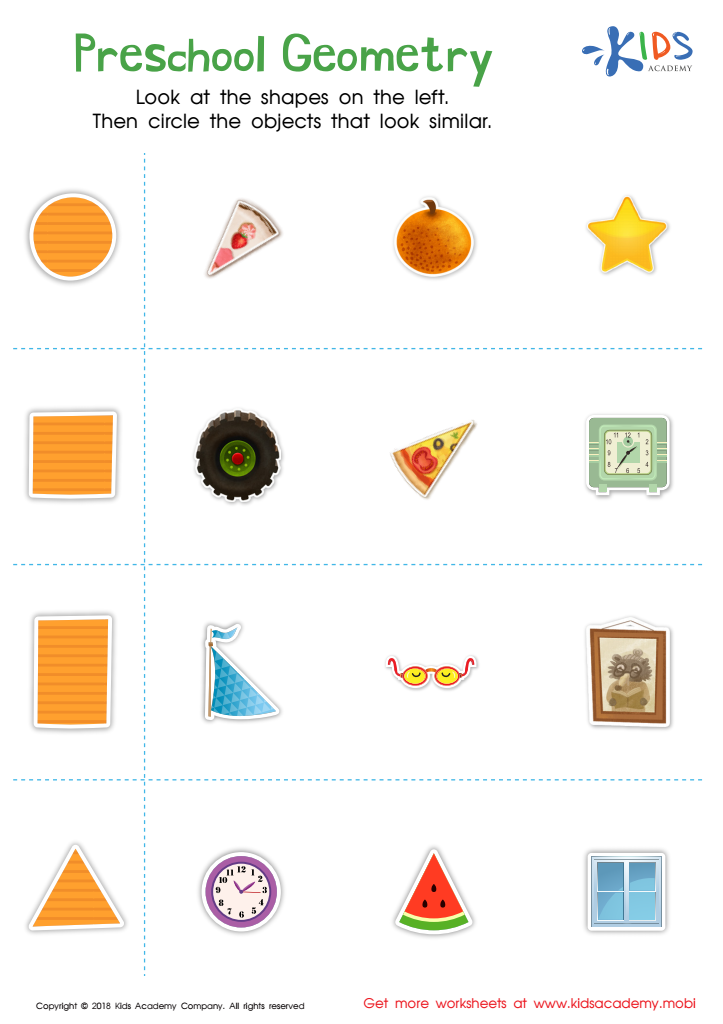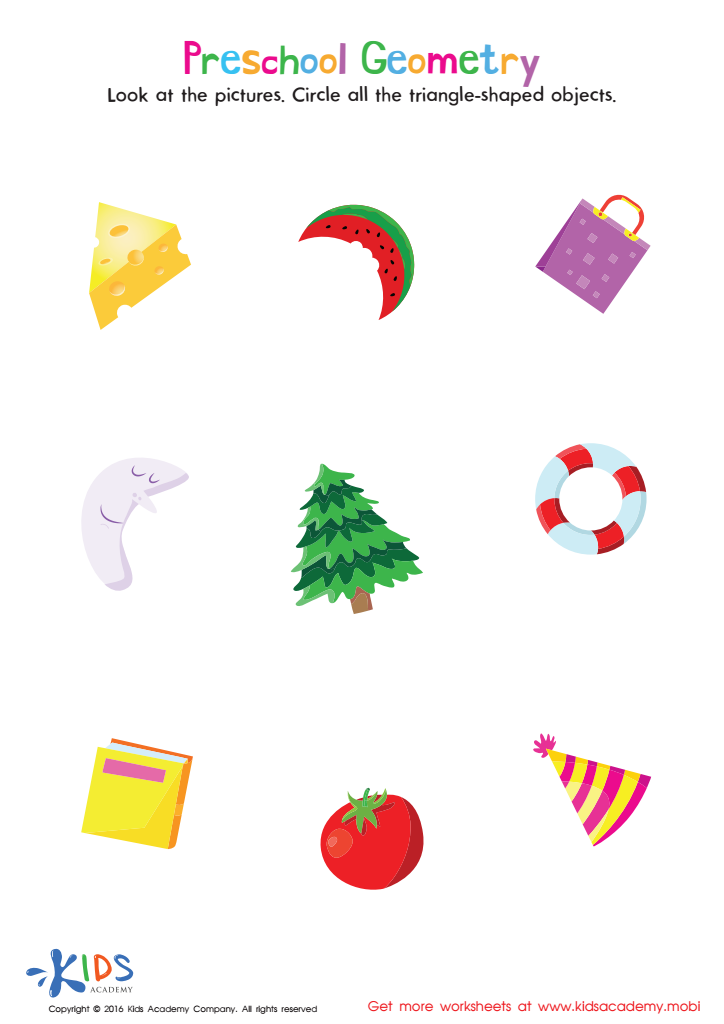Basic geometry understanding Normal Math Worksheets for Ages 3-7
4 filtered results
-
From - To
Discover our engaging Basic Geometry Understanding Normal Math Worksheets, specially designed for children aged 3-7. These printable resources introduce young learners to essential geometric concepts, such as shapes, sizes, and spatial relationships, in a fun and interactive way. Each worksheet encourages children to explore, identify, and classify various shapes, fostering their critical thinking and problem-solving skills. Our materials are crafted to align with early education standards, ensuring that children not only meet developmental milestones but also build a strong foundation for future math learning. Let your child enjoy a playful and educational journey into the world of geometry with our user-friendly worksheets!


Let's Count Faces! Worksheet


Ordering Size Worksheet


Preschool Geometry Worksheet
Parents and teachers should prioritize basic geometry understanding in children aged 3-7 because it lays a crucial foundation for future math proficiency and problem-solving skills. At this developmental stage, children are naturally curious and capable of learning abstract concepts through tangible experiences. Learning about shapes, sizes, and spatial relationships fosters critical thinking and cognitive development.
Basic geometry helps children categorize objects, understand symmetry, and recognize patterns, promoting mathematical reasoning and logical thinking. Incorporating geometric concepts into play encourages creativity and exploration, which are essential for holistic development. For instance, using building blocks can enhance spatial awareness while promoting fine motor skills.
Furthermore, geometry connects to real-world experiences, helping children make sense of their environment. Understanding shapes and spaces correlates with other subjects, such as science and art, enriching a child's overall education. Early exposure to these concepts can cultivate a strong interest in mathematics, setting the stage for better academic performance as they transition to more advanced topics in school.
In addition, a firm grasp of basic geometric concepts contributes to a child’s ability to think critically and approach challenges with confidence, vital skills that extend far beyond the classroom.
 Assign to My Students
Assign to My Students

















